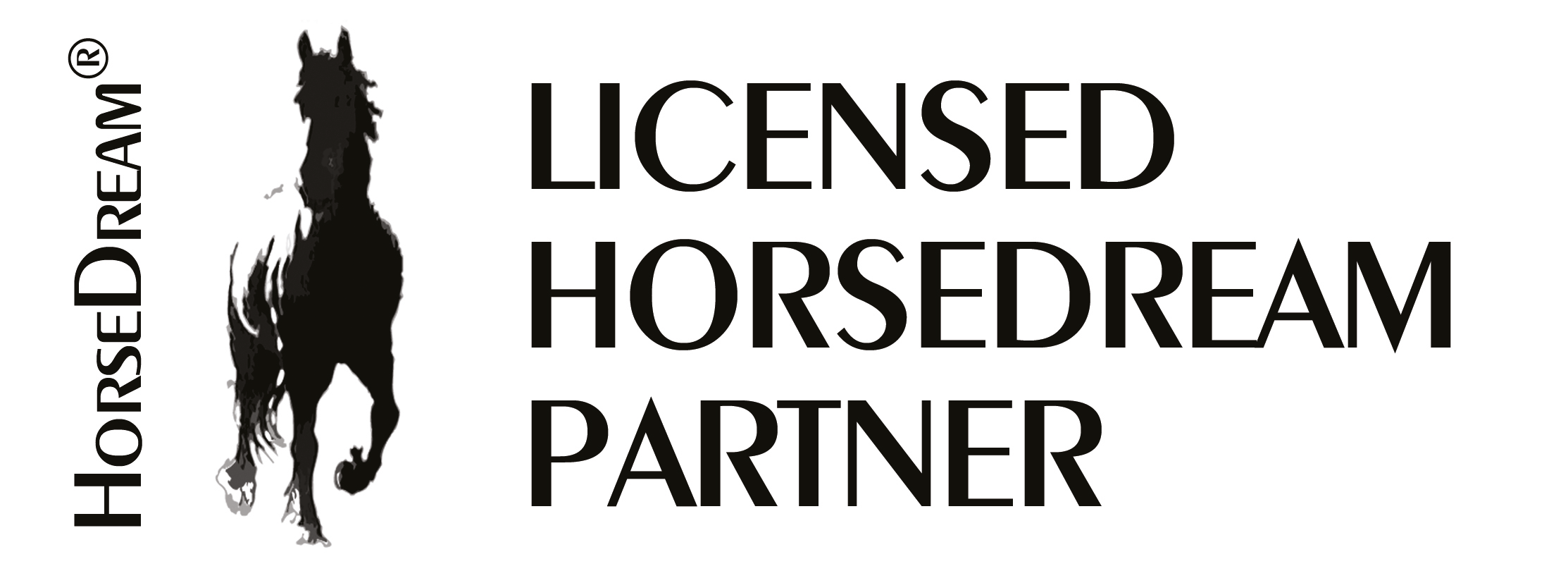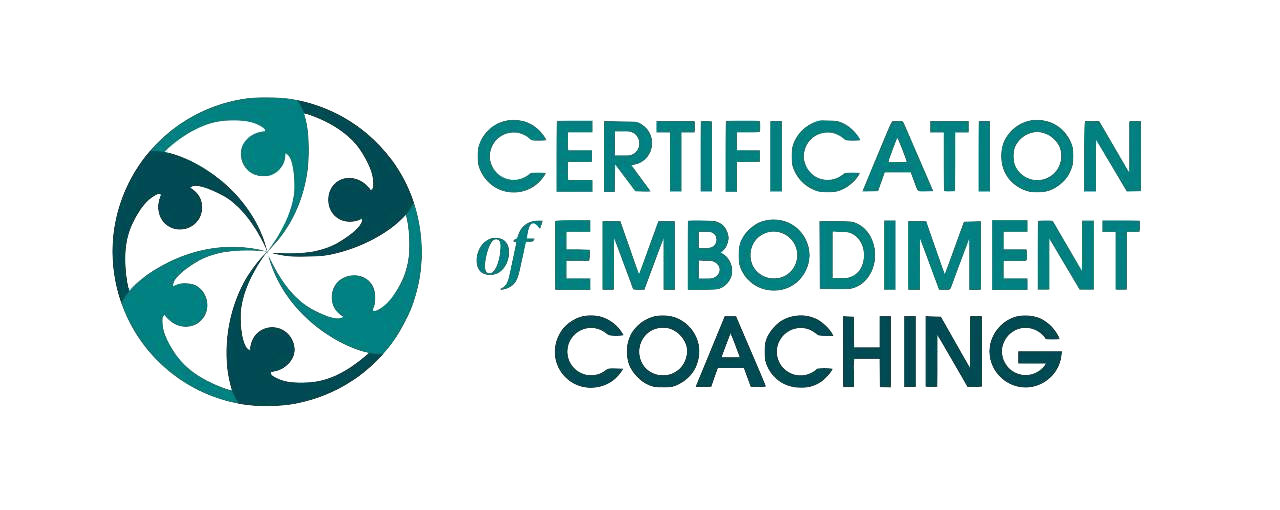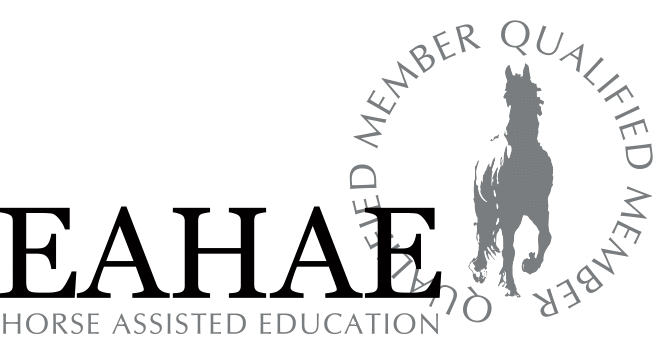Embodiment and Horses
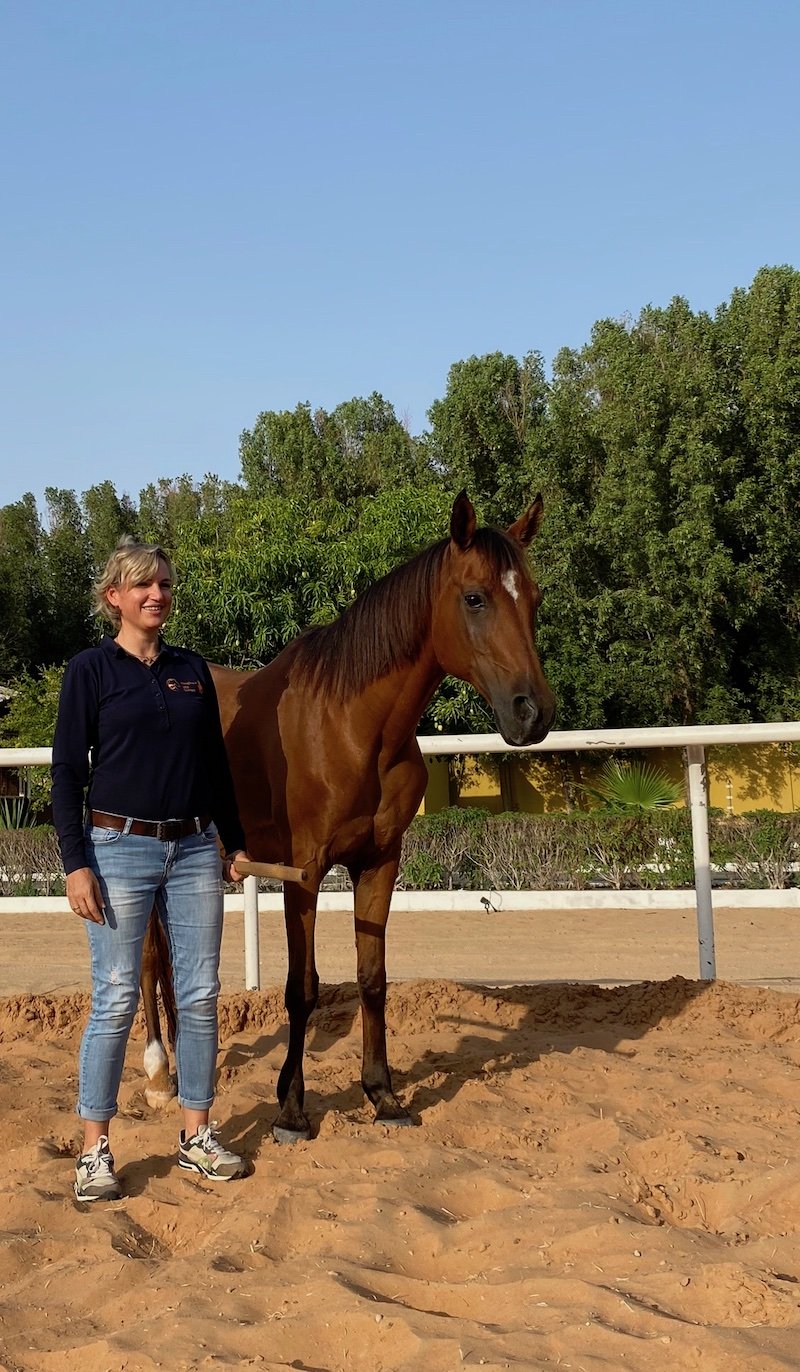
Let's start with the basics:
What is embodiment?
In simple words, embodiment means being in your body.
Feeling your emotions, noticing what your body is telling you, and responding to your bodies' requests.
Sounds easy, yet shockingly most people these days seem to be rather disembodied!
Disconnected from our own self, glued to little screens with our heads bowed down into submission, sitting on a chair most of the day just using our minds, not our bodies to do the work....
We are overworked, burned out, take eating and exercising to extremes, and are often not just disconnected from ourselves but also from society.
Why is being embodied important?
If disembodiment is a forgetting of our most fundamental nature, then a disembodied world is a psychopathic one.
A world where we don't have empathy for others because we stopped listening to our own needs - so how can we perceive other people's needs?
A world where we numb the pain, but in doing so, numb all the positive pleasures too, and start not just numbing pain, but also increasingly inflicting pain onto ourselves and each other.
Take the example of alcoholism:
Yes I can escape and forget my hectic day with a glass of wine. But in the long run, this is not beneficial nor healthy, and is not a solution to the problem.
Yoga and Meditation are great to get back to ourselves, but it is important that we start applying these learnings into day to day life, not just to one hour in the yoga shala were we again shut off the rest of the world.
Embodiment takes that further step.
Embodiment is about bringing back in alignment our whole being - mind, body and soul.
Our work combines embodiment and horses into a powerful method that builds bridges to real life through metaphors.
Embodiment coaching can help you very quickly get clarity over situations you face at life or at work, and change them effectively through engaging not just your mind, but also your body and your emotions.
The origins of disembodiment
Newest research has shown that our body holds a lot of past traumas, and disembodiment is a typical consequence of early childhood trauma.
By the way, trauma doesn’t always have to be war, abuse or life-threatening situations.
Many people suffer some sort of trauma, which explains why they react in certain ways as grown ups.
Take for example addictive behaviours: often we don’t associate it with something that happened in our past.
Modern psychology suggests that trauma can also occur in situations of feeling left alone, or feeling powerless.
Have you read about the work of Dr. Gabor Mate?
According to this highly acclaimed psychologist, a human has two main needs:
Attachment and Connection.
From the second they are born, babies have an immediate need for attachment, for being hold.
They can only regulate their state through interaction with another human being, and rely on their parents to show them how to regulate their emotions.
Yet, a lot of parenting advice over the past decades has suggested the opposite:
That we should “train” babies to be less attached, for example to sleep on their own instead of co-sleeping with their parents, which has been a natural situation for centuries and millennia.
Mothers are taught to ignore their own feelings, which instinctively ask them to go to after their baby when it starts screaming.
Instead, there are entire schools teaching to let a baby cry to fall asleep in its own room.
What does that teach the little human?
That its needs are being ignored, that nobody will come to hold it when it calls, and it is basically taught to not pay attention to its own feelings.
It sounds tough, and it is in my opinion.
Insecure, sleep deprived mothers follow advice which they read in the internet or in books from someone who has never met them, and act against their own instincts and that of the baby, thus unknowingly leaving a mark for life.
This is just one example of many.
Usually humans are very resilient and if feelings of loneliness or being ignored only happen once in a while and the child otherwise grows up in a loving environment, it will be able to cope and not take harm from random situations. Parents are only humans too and we all do mistakes.
If however the childhood home is generally one where the child grows up without much human contact, without much love, then disembodiment is a way of coping with the non-attachment.
And this generally will show up later in life again in insecurities, anxieties, addictions, constantly surrounding oneself with the wrong people, etc.
What is the solution?
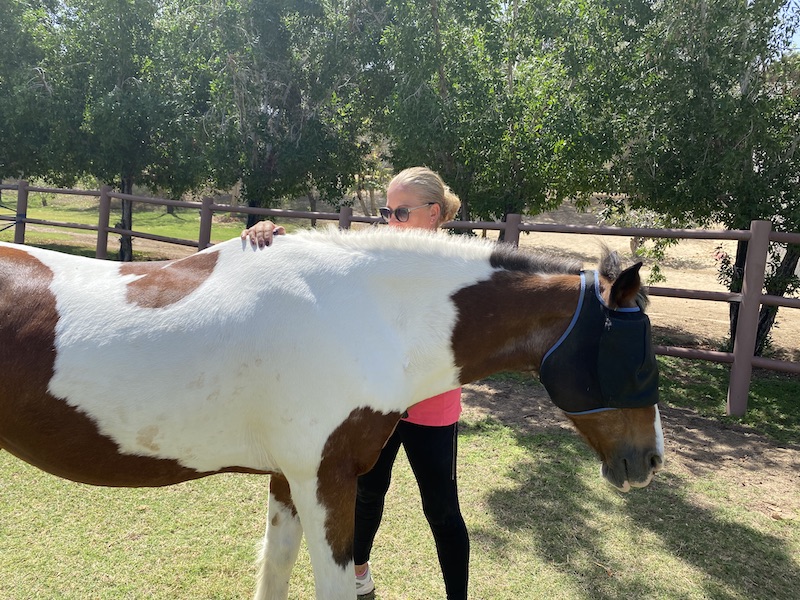
The solution in my opinion is to not just look at the symptoms like the anxiety or the addiction, but try to find the root cause and how we feel about it.
In a depressed 14 year old girl, maybe finding out that what is happening at home is not her own fault, but that the family is dysfunctional and she shouldn’t feel guilty about it, and should rather focus on her own happiness and life.
In our coaching sessions with the horses, we feel, we move, we touch, and we work with a sensitive mammal that doesn’t care about what or who we appear to be.
Horses only care about what is deep inside us.
About who we really are.
As a human being, not as a persona or a mask that we put up to fit in with society.
Interacting with them, getting a reaction to our being, and reviewing this in cooperation with a facilitator who translates what is happening, guides the activity to a positive awareness and change, can leave us feeling empowered and not only noticing this in our mind, but in our emotions and body too.
Interested to know more?
I offer both embodiment coaching without the horses - on zoom or face to face in Dubai.
And of course private and group sessions, corporate and private, with the horses where both modalities are combined.
Schedule a call to find out more in detail what the horses can do for you!
Newsletter subscription
Sign up to my newsletter to stay up to date with upcoming courses, new information added to the website, and more news related to horse guided education in the UAE.


